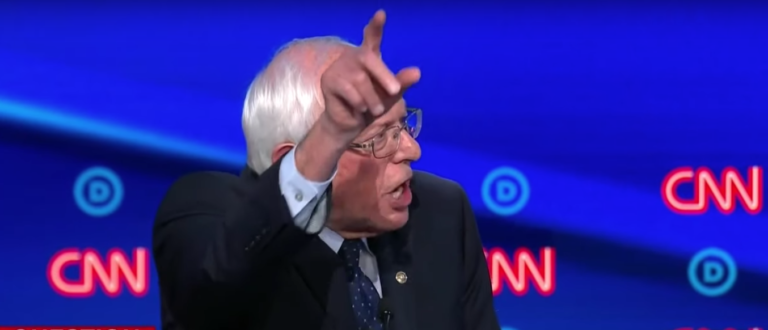Without any proof, The New York Times and Washington Post run “Russia helping Sanders” stories, and Sanders responds by bashing Russia, writes Joe Lauria.

With Democratic frontrunner Bernie Sanders spooking the Democratic establishment, The Washington Post Friday reported damaging information from intelligence sources against Sanders by saying that Russia is trying to help his campaign.
If the story is true and if intelligence agencies are truly committed to protecting U.S. citizens, the Sanders campaign would have been quietly informed and shown evidence to back up the claims.
Instead the story wound up on the front page of the Post, “according to people familiar with the matter.” Zero evidence was produced to back up the intelligence agencies’ assertion.
“It is not clear what form that Russian assistance has taken,” the Post reported. That would tell any traditional news editor that there was no story until it is known.
Instead major U.S. media are again playing the role of laundering totally unverified “information” just because it comes from an intelligence source. Reporting such assertions without proof amounts to an abdication of journalistic responsibility. It shows total trust in U.S. intelligence despite decades of deception and skullduggery from these agencies.
Centrist Democratic Party leaders have expressed extreme unease with Sanders leading the Democratic pack. Politico reported Friday that former New York Mayor Mike Bloomberg’s entry into the race is explicitly to stop Sanders from winning on the first ballot at the party convention.
A day after The New York Times reported, also without evidence, that Russia is again trying to help Donald Trump win in November, the Post reports Moscow is trying to help Sanders too, again without substance. Both candidates whom the establishment loathes were smeared on successive days.
In a Tough Spot
The Times followed the Post report Friday by making it appear that Sanders himself had chosen to make public the intelligence assessment about “Russian interference” in his campaign.
But Sanders had known for a month about this assessment and only issued a statement after the Post asked him for comment before publishing its uncorroborated story based on anonymous sources.
Sanders was put in a difficult spot. If he said, “Show me the proof that Russia is trying to help me,” he ran the risk of being attacked for disbelieving (even disloyalty to) U.S. intelligence, and, by default, defending the Kremlin.
So politician that he is, and one who is trying to win the White House, Sanders told the Post:
“I don’t care, frankly, who Putin wants to be president. My message to Putin is clear: Stay out of American elections, and as president I will make sure that you do. In 2016, Russia used Internet propaganda to sow division in our country, and my understanding is that they are doing it again in 2020.”
The Times quoted Sanders as calling Russian President Vladimir Putin an “autocratic thug.” The paper reported Sanders saying in a statement: “Let’s be clear, the Russians want to undermine American democracy by dividing us up and, unlike the current president, I stand firmly against their efforts and any other foreign power that wants to interfere in our election.”
Responding to a cacophony of criticism that Sanders’ supporters are especially vicious online, as opposed to the millions of other vicious people online, Sanders attempted to use Russia as a scapegoat, the way the Clinton campaign did in 2016. He said: “Some of the ugly stuff on the Internet attributed to our campaign may well not be coming from real supporters.”
But no matter how strong Sander’s denunciations of Russia, his opponents will now target him as being a tool of the Kremlin.
Mission accomplished.
Joe Lauria is editor-in-chief of Consortium News and a former correspondent for The Wall Street Journal, Boston Globe, Sunday Times of London and numerous other newspapers. He can be reached at joelauria@consortiumnews.com and followed on Twitter @unjoe .
This article was published by “Consortium News“
